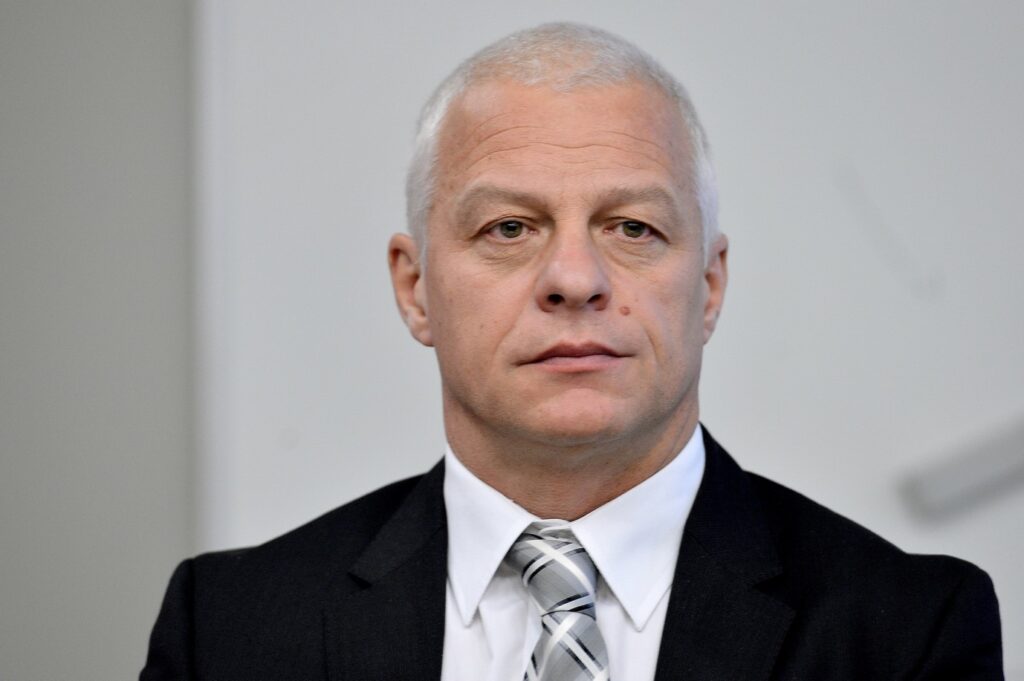“Slovenia’s inaction in the matter of bribery from abroad remains a serious problem at a time when allegations of political interference in investigations and prosecutions have escalated.” This is what was written in a draft of a press release on the results of a report on the 4th phase of the Organisation for Economic Co-operation and Development (OECD) Working Group on Bribery in International Business Transactions, which assesses and makes recommendations on the Slovenian implementation and enforcement of the Convention on Combating Bribery of Foreign Public Officials in International Business Transactions.
Today, the report of the Organisation for Economic Co-operation and Development will be published, which will discredit Slovenia again with suspicions of corruption, attacks on the media and similar insinuations, which the Slovenian left have been regularly and for a long time now launching through domestic and foreign media. The evaluation of the 3rd phase of the mentioned OECD working group was done in 2014. But this time, things are different. Thanks to Drago Kos, the head of the OECD working group on bribery, the report on Slovenia included various politically coloured comments as part of the usual dry reading in the last couple of years.
Kos has been leading the working group since 2013. In March 2021, the evaluation of the 4th phase in Slovenia took place. And as is clear, not everything went according to plan. According to the findings of the working group, the prosecution of foreign bribery in Slovenia is poor, but changes have been made in recent years – for the better. Of course, as always, there is plenty of room for improvement. This part, in itself, simply is what it is. There was really nothing else to expect.
However, complications arose when the working group’s report seemed to start glorifying the role of the media. When reading the report of the OECD working group, one quickly gets the impression that in Slovenia, only fearless journalists are prosecuting and warning of corruption, while the judiciary, the prosecutor’s office, and the police are so chronically incompetent that they have to use newspaper clippings to do their jobs. “If the media reporting raises the suspicion of a criminal act, the competent police authorities are notified, who then act in accordance with their power and legal obligations,” the report reads.
Bringing up old made-up “affairs”
Tales about the sacrifice of the Slovenian journalists start to make sense when we come to the part of the report where we can read about the attacks of the current government on the journalists and the “whistleblower” Ivan Gale, who is portrayed as a victim. As per usual, once again, there is talk of anonymous sources, which is a force to be reckoned with. The OECD also consulted with the NGOs and journalists when issuing their report in 2014, but they were named at the tame – it was the journalists from Večer. This time, they are remaining nameless. The OECD working group states that they talked to members of two NGOs – Focus Slovenia and Transparency International Slovenia: They also name “investigative journalists” as one of their sources.
However, the “investigative journalists” are not the only unknown part of the report. They are at least mentioned, even if it is without a name. Drago Kos is not mentioned anywhere, even though he himself leads the OECD group in question.
They are more interested in the “attacks on the media” than corruption in IranNLBgate
The main purpose of the report is not to actually report on the fight against corruption in Slovenia, but to launch another scandal, which the central media have been preparing for about a year, in the hope that with it, they will finally manage to bring down the government of Janez Janša. Misleading statements regarding the procurement of protective and medical equipment is also part of the report, as they accuse the Minister of the Economy, Zdravko Počivalšek, of doing the wrong thing when he got Slovenia what it needed.
What is so striking is the fact that the report, which is supposed to deal with the state of the fight against corruption and foreign bribery in Slovenia, pays so much attention to the alleged threats to media freedom, and at the same time, the NLB Irangate affair is completely overlooked. A billion euros of laundered terrorist money in the largest state-owned bank, multimillion-euro remittances for Superman and Anna Karenina, and we could go on. However, the OECD working group does not find this interesting in its fight against foreign bribery. The whole affair of laundering Iranian money is mentioned only in passing, as the reason for the current government’s dismissal of the head of the National Bureau of Investigation, Darko Muženič.
Ivan Šokić


